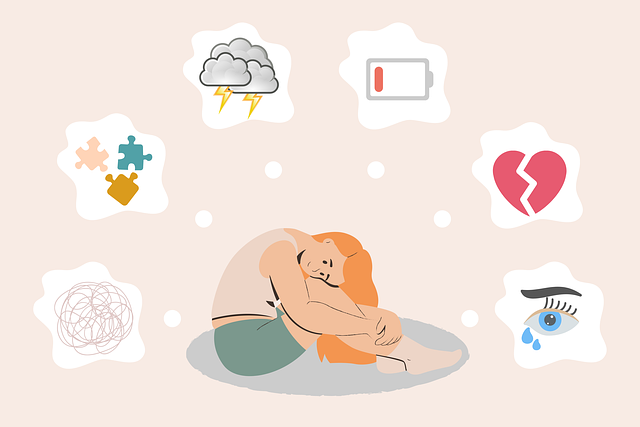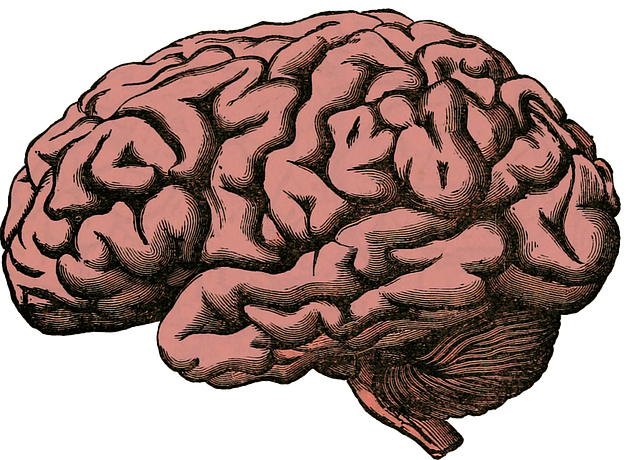Lone Tree Chronic Pain Therapy prioritizes mental wellness group dynamics for effective chronic pain management. Facilitators create a safe, inclusive environment through active listening, empathy, and balanced communication, encouraging participants to share openly. Self-care practices, journaling, and awareness campaigns enhance this space, promoting personal growth. The holistic approach, combining technical knowledge with empathy, ensures sessions are supportive and engaging, reflecting the therapy center's commitment to exceptional care. Active listening fosters engagement, builds trust, and empowers individuals to manage mental health challenges through coping skills development and self-care routines.
“Explore powerful techniques for facilitating mental wellness groups with Lone Tree Chronic Pain Therapy’s comprehensive guide. Discover how to navigate complex group dynamics, implement effective communication strategies, and create safe spaces. Learn to foster engagement and accountability, ensuring every member feels supported. This article delves into the art of facilitation, offering insights tailored to professionals aiming to enhance group therapy experiences, much like a tranquil haven in the heart of a bustling forest.”
- Understanding Mental Wellness Group Dynamics
- Effective Communication Strategies for Facilitators
- Techniques to Create a Safe and Supportive Environment
- Fostering Engagement and Accountability in Group Settings
Understanding Mental Wellness Group Dynamics

Understanding Mental wellness group dynamics is crucial for facilitators aiming to create a supportive and therapeutic environment at Lone Tree Chronic Pain Therapy. Each individual brings their unique experiences, perspectives, and challenges, forming intricate social connections within the group. Recognizing and addressing these dynamics fosters an inclusive atmosphere where everyone feels heard and valued. Facilitators can enhance this by encouraging active participation through open discussions, fostering empathy among members, and promoting a sense of belonging.
Group interactions often reveal complex relationships, with some individuals taking on leadership roles while others may need extra support. Skilled facilitators navigate these variations, ensuring every member contributes to the group’s collective healing process. By integrating self-care practices and mental wellness journaling exercises, as well as leveraging public awareness campaigns development strategies, facilitators can create a safe space for personal growth and transformation within the supportive group setting.
Effective Communication Strategies for Facilitators

Effective communication is a cornerstone for facilitators leading mental wellness groups, especially when addressing complex topics like chronic pain. Facilitators at Lone Tree Chronic Pain Therapy employ active listening to ensure every participant feels heard and understood. This involves giving undivided attention, paraphrasing statements to confirm comprehension, and asking open-ended questions that encourage detailed responses. Such practices foster a safe space where individuals can express their experiences honestly.
Moreover, facilitators use clear and concise language tailored to the group’s understanding, balancing technical expertise with accessibility. They also integrate Empathy Building Strategies and Resilience Building techniques into discussions, using personal anecdotes and analogies to connect with participants on an emotional level. This holistic approach enhances communication, making sessions engaging, supportive, and ultimately therapeutic for all involved in the Mental Wellness Podcast Series Production.
Techniques to Create a Safe and Supportive Environment

Creating a safe and supportive environment is paramount when facilitating mental wellness groups, especially considering the sensitive nature of chronic pain management. Techniques such as active listening and open-ended questions foster a sense of belonging and encourage participants to share their experiences freely. By cultivating an atmosphere of empathy and understanding, facilitators can help individuals feel seen and heard, which is crucial for building trust within the group.
Integrating compassion cultivation practices, like mindful communication and positive reinforcement, enhances this safety net. Mind over matter principles, too, play a significant role in burnout prevention strategies for healthcare providers facilitating these groups. By promoting self-care and resilience, facilitators ensure they can support their members effectively while also maintaining their own well-being.
Fostering Engagement and Accountability in Group Settings

In mental wellness group settings, fostering engagement and accountability is key to facilitating meaningful progress among participants, particularly those dealing with chronic pain at Lone Tree Chronic Pain Therapy. Group dynamics can be powerful tools for encouraging open communication and building a sense of community. Techniques such as active listening, where facilitators pay close attention to each member’s shared experiences, create an environment that makes individuals feel heard and valued. This not only enhances participation but also promotes accountability as members are more inclined to engage when they perceive their voices mattering.
Additionally, group facilitation should incorporate strategies for coping skills development and self-care routine establishment. By teaching positive thinking practices and stress management techniques, facilitators empower participants with tools to manage mental health challenges. Regularly integrating these concepts ensures that the group remains focused on personal growth and collective well-being, fostering a supportive atmosphere where members can hold each other accountable for practicing what they’ve learned.
Mental wellness group facilitation is an art that empowers individuals through community support. By understanding dynamic group behaviors, facilitators can create a safe haven where members feel heard and engaged. Effective communication strategies and techniques to foster accountability ensure every voice is valued, mirroring the core principles of Lone Tree Chronic Pain Therapy’s approach to holistic healing. Through these practices, groups can transform into powerful networks that enhance mental wellness and support long-term well-being.














